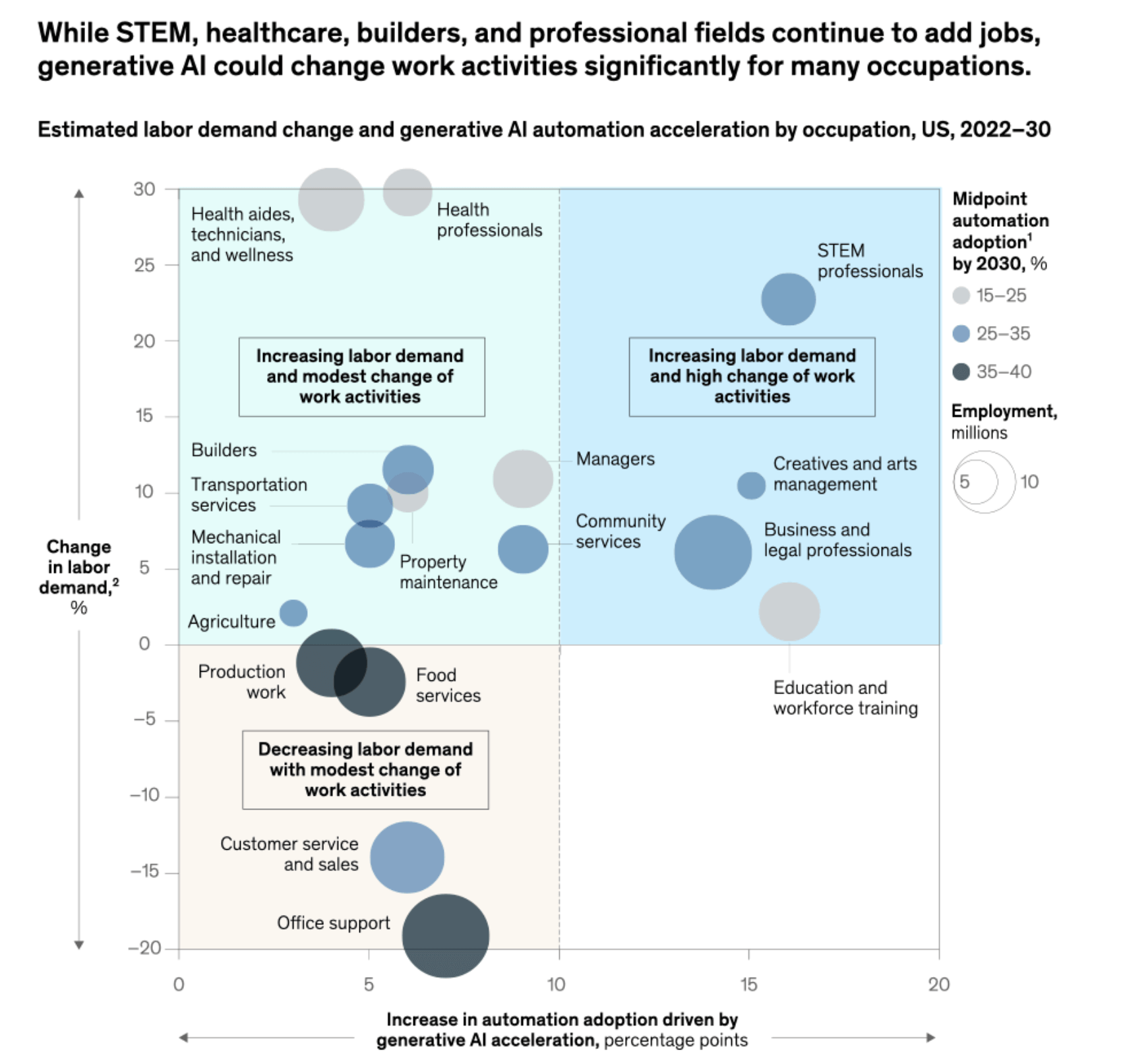
How AI is Affecting Work
24 September, 2023
Generative AI is changing the game, boosting automation in knowledge work. However, its impact on physical tasks remains limited, aligning with its cognitive capabilities.
Focus on Knowledge Work
Generative AI is set to shine in knowledge work, particularly decision-making and collaboration. These domains, previously hard to automate, are now ripe for transformation.
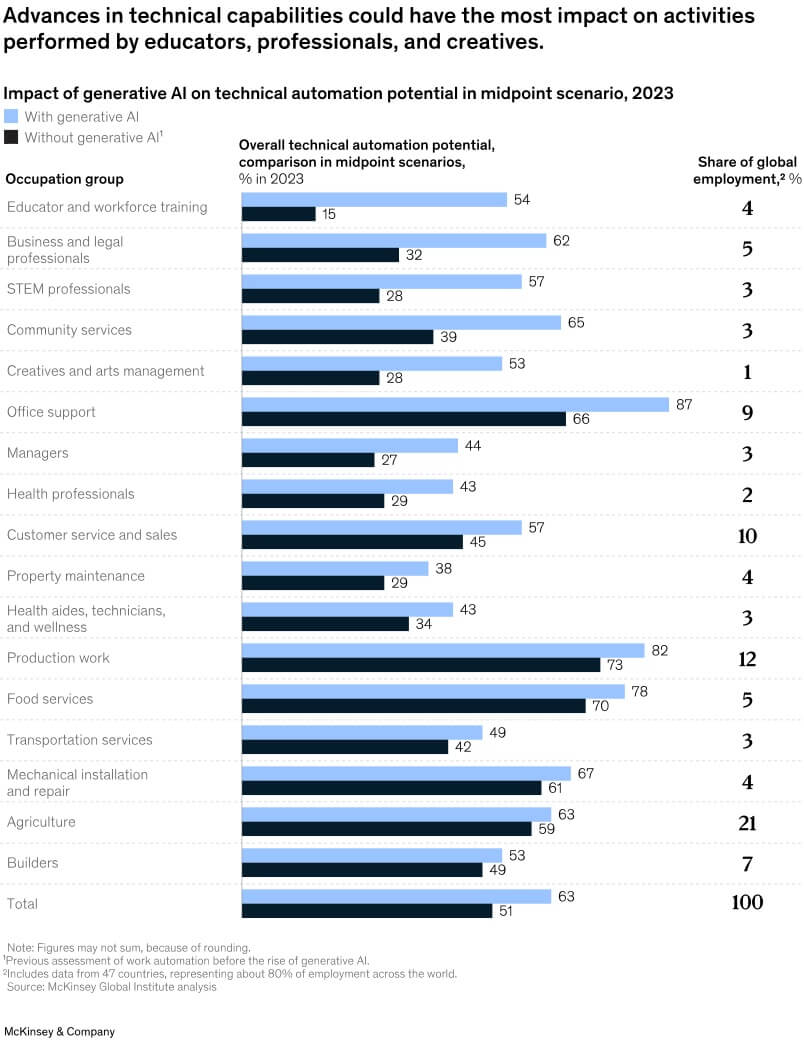
Billions in Value Creation
Across 63 analyzed use cases, generative AI could generate $2.6 to $4.4 trillion in value across industries. Its impact varies, with retail potentially gaining $310 billion in extra value, primarily in marketing and customer interactions.
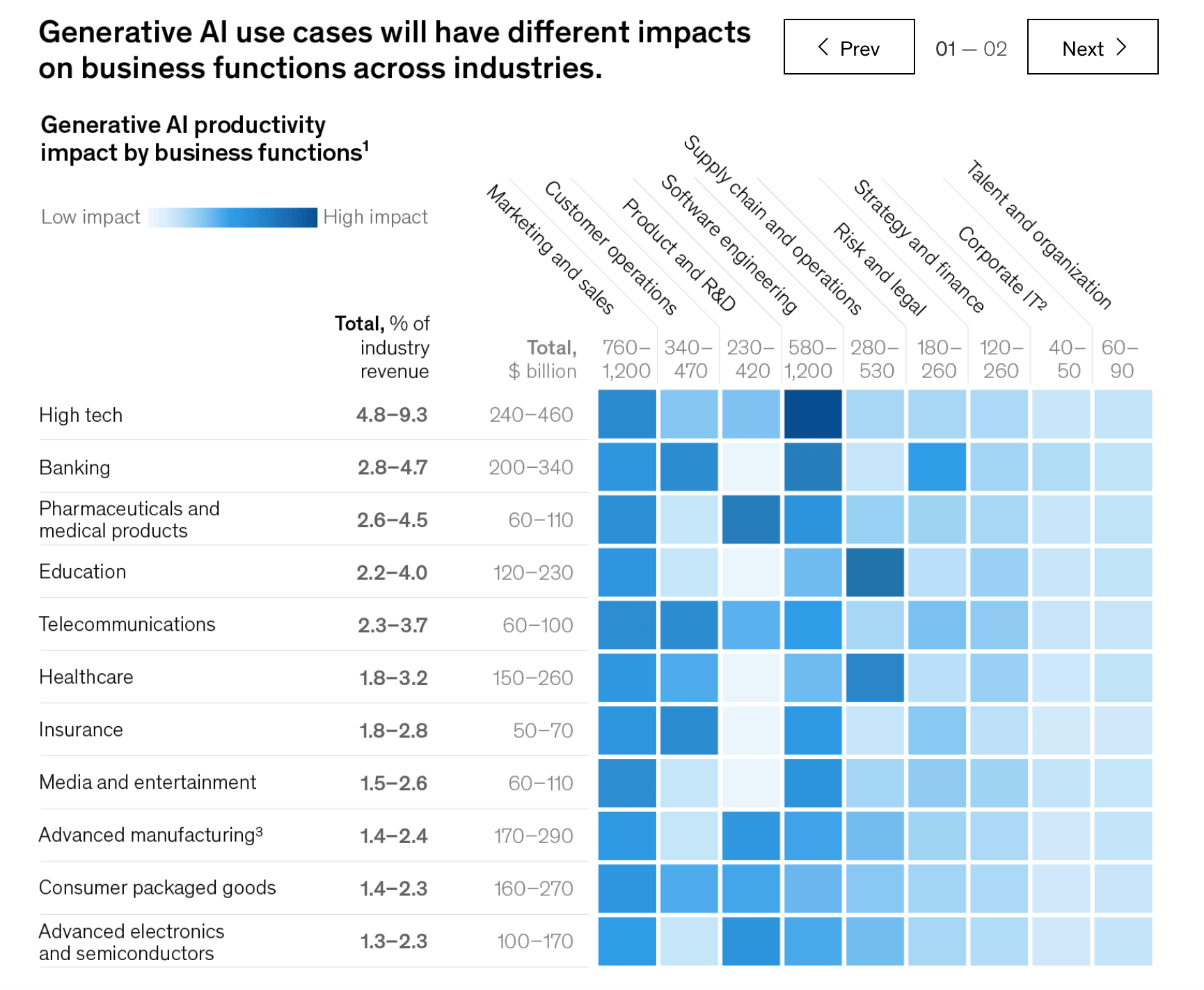
AI's Impact on Education
AI's influence extends beyond routine tasks. It's poised to affect tasks performed by highly educated workers more than those with lower education levels. Bachelor's and PhD holders may see tasks automated.
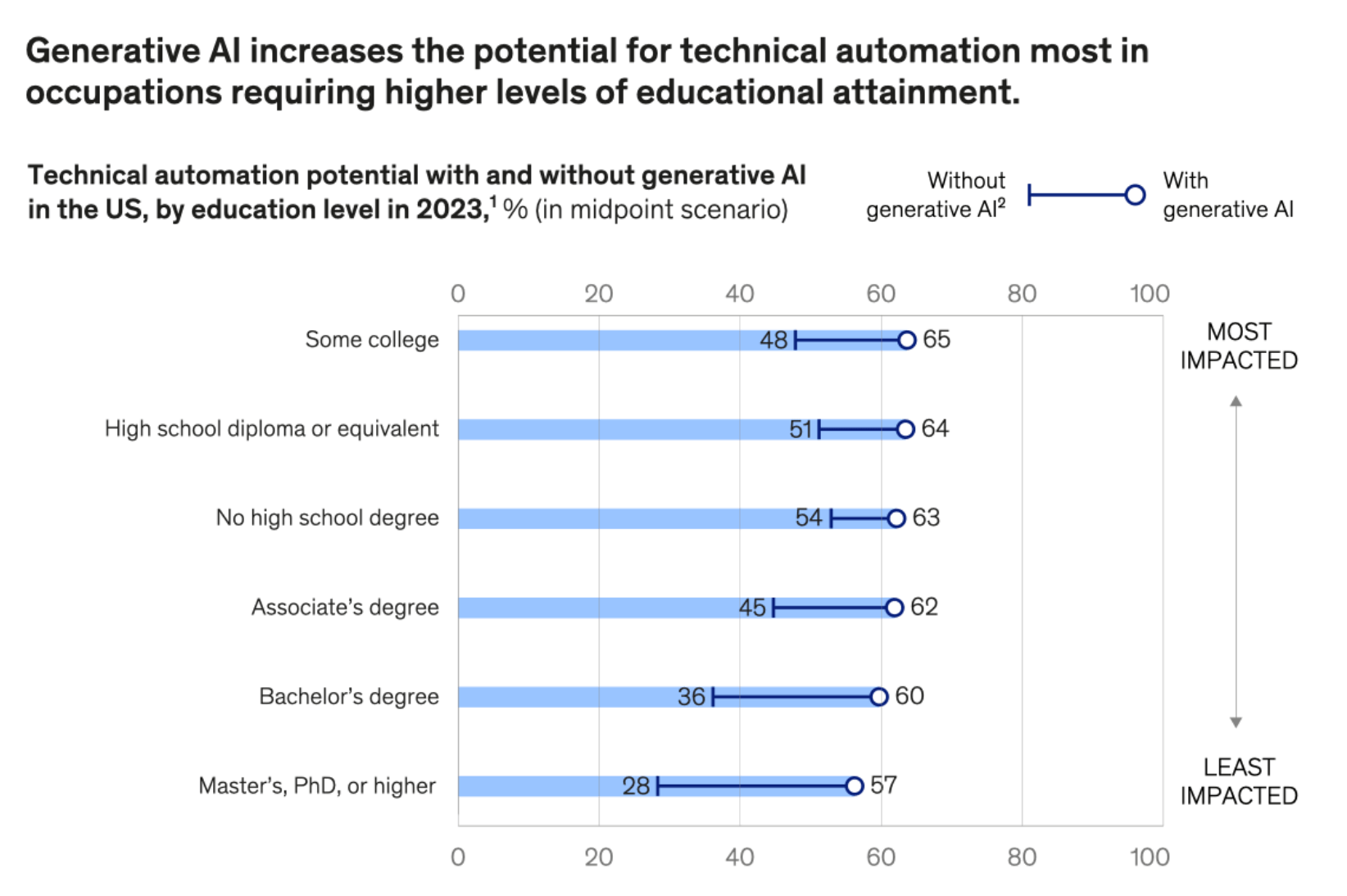
Reskilling Over Separation
As AI adoption grows, it will reshape the workforce. While some jobs may transform, many employees will need to reskill. Over 40% of respondents expect significant reskilling within three years, while 8% foresee reduced workforces.
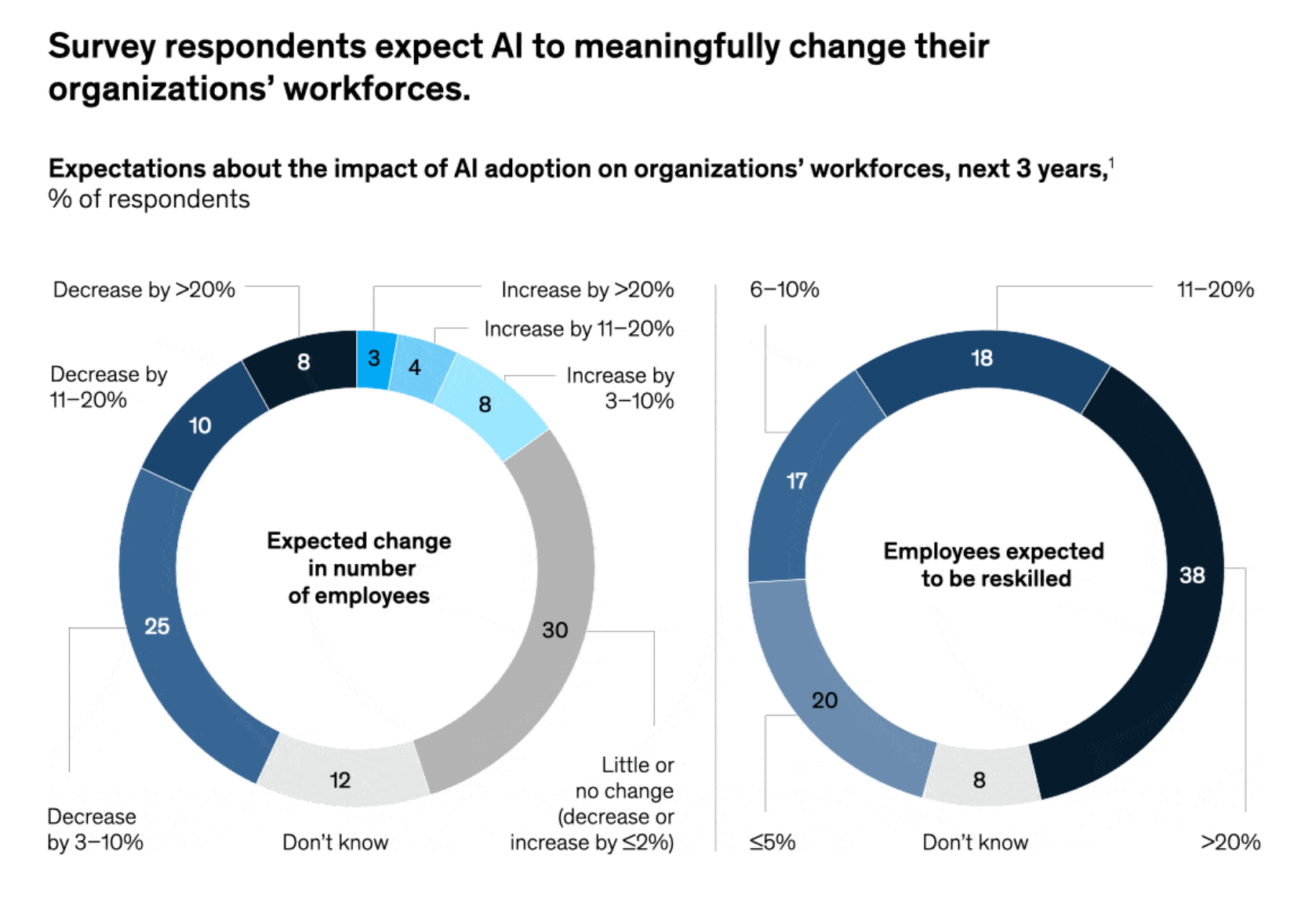
Changing Landscape in the US
The US labor market is evolving rapidly, with AI furthering the transformation. Healthcare and STEM fields could see substantial job growth by 2030, while occupations like office support, customer service, and food services may experience declines, potentially losing 1.6 million jobs.
